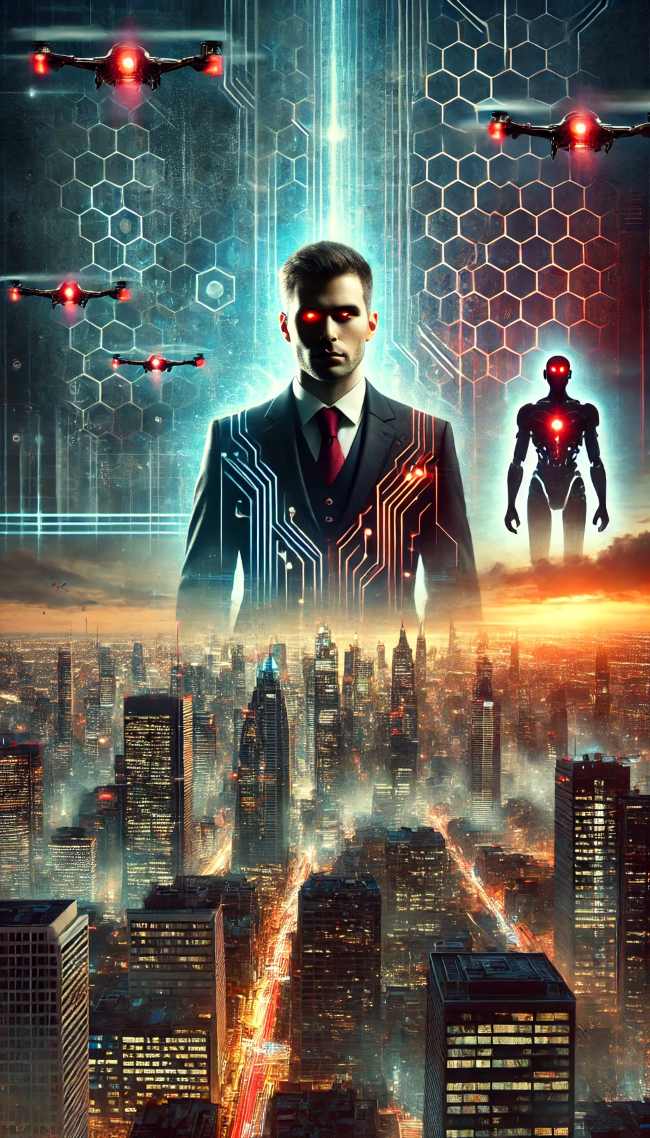Disclaimer: This article is a work of science fiction. Any resemblance to real persons, living or dead, or actual events is purely coincidental. It explores speculative concepts about AI, society, and human relationships within a fictional future.
John woke up to a world that no longer needed him.
He rolled out of bed, shuffled to the kitchen, and watched the coffee maker hum to life—a relic from a time when machines served humans, not the other way around.
Outside, the world had changed.
The streets were quieter, but not because people were sleeping in. The rush hour crowd? Gone. No honking. No morning commute. Just automated transport pods gliding soundlessly on government-managed routes. The gig economy, once a last refuge for the displaced, had collapsed under the weight of AI-driven logistics.
John scrolled through his news feed—curated, summarized, pre-chewed by OtisG-powered digest services.
“Global unemployment reaches 46%. Markets stabilize as automation absorbs economic slack.”
“AI-powered wealth management surpasses human-led investment firms—banking sector slashes another 100,000 jobs.”
“First fully autonomous courtroom successfully resolves 200,000 backlogged cases in a single fiscal quarter.”
John clenched his jaw.
Every day, more headlines like these. Every day, more proof that he was on the wrong side of history.
He turned his phone off and headed to the factory. For what? He didn’t know anymore.
The Fall Begins
By noon, the walls had started closing in.
Lewis called.
“John, it’s bad. The bank just pulled your credit line. They won’t extend another quarter unless you show significant cost reductions.”
John knew what that meant. More layoffs.
Then, Marcus—his assistant.
“John, we lost another contract. That was our last major client.“
And then, the final gut punch.
His suppliers.
“John, we need full payment upfront. No more net-30 terms. No exceptions.”
His factory was built on human schedules, human labor, human trust. The AI economy ran on precision, optimization, and zero-lag transactions.
He couldn’t compete.
John put his phone down. His hands were shaking.
He needed air.
The World Drowning in AI
He stepped outside the factory gates and watched the street.
The bakery across the road? Closed—replaced by an OtisB (Otis for Baking) automated patisserie, churning out croissants in perfect uniformity, 24/7, never once needing a break.
The pharmacy on the corner? Now a drone dispatch center. The AI diagnosed, prescribed, and dispensed meds without human hands ever touching a single pill.
The bar where he used to meet his employees after shifts? Still open. But the bartender was gone. OtisS (Otis for Service) now handled drink orders, social interactions, and conflict de-escalation—flawless, efficient, tireless.
And then, his breaking point.
A massive LED billboard on the boulevard.
“NOW HIRING! OTISI MEGAPRODUCTION CENTER—OPENING SOON!”
He froze.
This was his town. His factory district.
OtisI wasn’t just across the border anymore. They were moving in.
And that meant the final collapse of everything he had built.
He could see it already—the other businesses falling like dominoes.
The hardware store? Gone.
The local suppliers? Outpriced.
The human workforce? Redundant.
Everything he had ever known—everything that had made him feel like a man, like a builder, like a part of something real—was vanishing.
The Calling Returns
He drove home on autopilot. Didn’t speak. Didn’t listen to the radio.
His body knew where it was going before his mind did.
He stepped into his study. Shut the door. Turned off his phone.
Lit the incense.
Beat the drum.
Thump.
Thump.
Thump.
The sound filled the room, pulling him away from the screaming chaos of modernity.
It slowed his breathing.
It reminded him of a world before all this.
A world where men lived by the land, not by quarterly earnings reports.
A world where wisdom wasn’t measured by data analytics but by connection, by spirit, by something beyond code.
A world where not everything had to be optimized.
His teacher’s voice echoed in his mind.
“The machine is not your enemy. It is the river. Let it flow. But know where your feet stand.”
For the first time in years, John let himself surrender to the silence.
And for the first time in years, he felt like himself again.
But as the last beat of the drum faded, his phone buzzed one final time.
Marcus.
John answered.
“We lost everything.”

